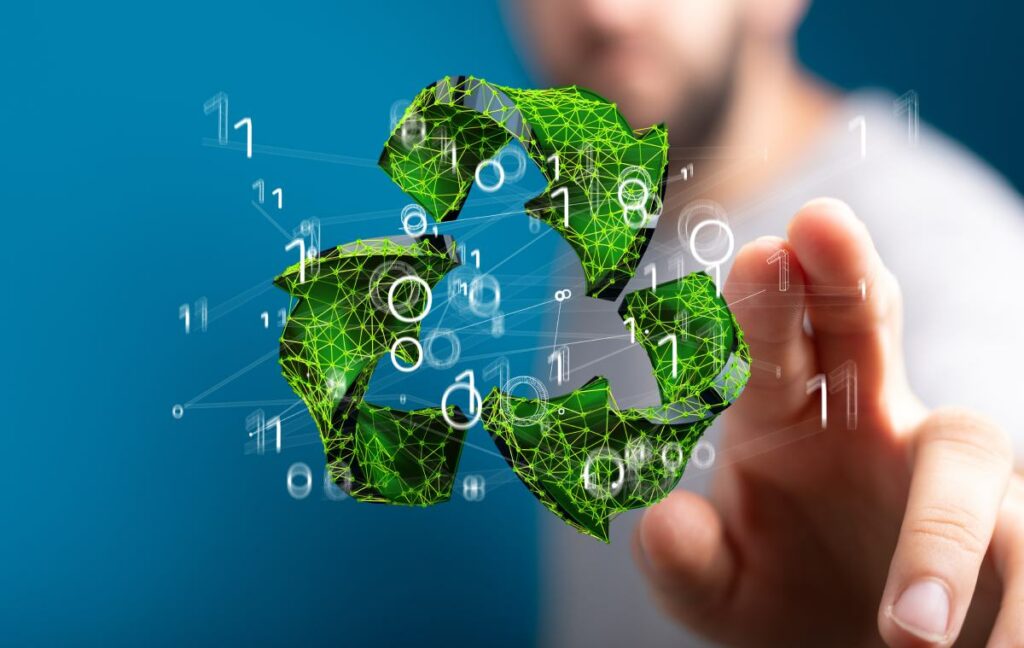New Jersey is among the vast majority of states that has legislation in place governing the recycling of electronic equipment. We’re here to help sort through the specific rules and regulations regarding the recycling of electronics. We will discuss what you need to know about recycling electronics in New Jersey and why it is imperative that you do so.

The Importance Of Electronic Recycling
It’s no secret that the world is increasingly reliant on electronic devices. Electronics are a staple in most households, from smartphones to laptops to TVs. But what happens when those devices cease to function or become outdated? Many people simply dispose of them with general household waste, which can have severe environmental consequences.
When electronics are dumped in landfills, harmful chemicals can leach into the soil and contaminate groundwater. In addition, incinerating electronics releases toxic chemicals into the air. And because most electronic devices contain valuable metals like gold and copper, mining for these resources becomes necessary to meet demand. This can lead to deforestation, soil erosion, and water pollution.
Fortunately, there’s a solution: recycling electronics. Recycling e-waste helps to conserve resources, prevent pollution, and create jobs. When done correctly, recycling can be a win-win for both the environment and the economy. So next time you upgrade your phone or replace your TV, be sure to recycle your old electronics responsibly.
What Type Of Electronics Can Be Recycled?
Most people are familiar with recycling paper, plastic, and glass, but many are not aware that electronics can also be recycled. Electronics recycling has grown exponentially over the past couple of decades as our dependence on computing devices has grown. Here are some common types of electronics that can be recycled:
Computers
The process of computer recycling includes both laptops and desktop computers. Many parts of a computer can be reused, including the monitor, keyboard, mouse, and hard drive. In addition, the metals in a computer (such as copper and aluminum) can be melted down and repurposed for use in manufacturing new devices.
Televisions
Like computers, televisions contain valuable metals that can be recycled. In addition, the glass screen can be broken down and used to create new glass products.
Cell Phones
Cell phones contain a variety of metals (such as gold, silver, and copper) and plastic. Recycling cell phones help to conserve these valuable resources.
Printers
Printers contain many of the same materials as computers and televisions. In addition, printer ink cartridges can often be refilled and reused.
Recycling electronics is a great way to help conserve resources and protect the environment. So next time you acquire new electronics, be sure to recycle your old ones!
What To Know Before Recycling Your Electronics
Before recycling your electronics, there are a few things you should know:
Data Security
When recycling a computer or other electronic device, make sure you use a facility that emphasizes data destruction. If you use a facility that doesn’t provide a certificate of recycling or describe their process for destroying personal information, you risk having your data end up in the hands of bad actors who can sell or retrieve your financial or Social Security information, to cite just a couple of examples.
Are Batteries Recycled?
Some facilities are licensed to recycle batteries, while others are not. If this is of interest to you, it is highly advised that you check with the facility you work with to ensure that it is authorized to properly recycle them.
Final Thoughts
By following these simple tips, you can ensure that your electronics are adequately recycled in New Jersey. Recycling electronics is a great way to help conserve resources and protect the environment. Remember to recycle your old devices if you are no longer using them. Following a few simple tips can ensure that you help to do your part to improve the world around us.



